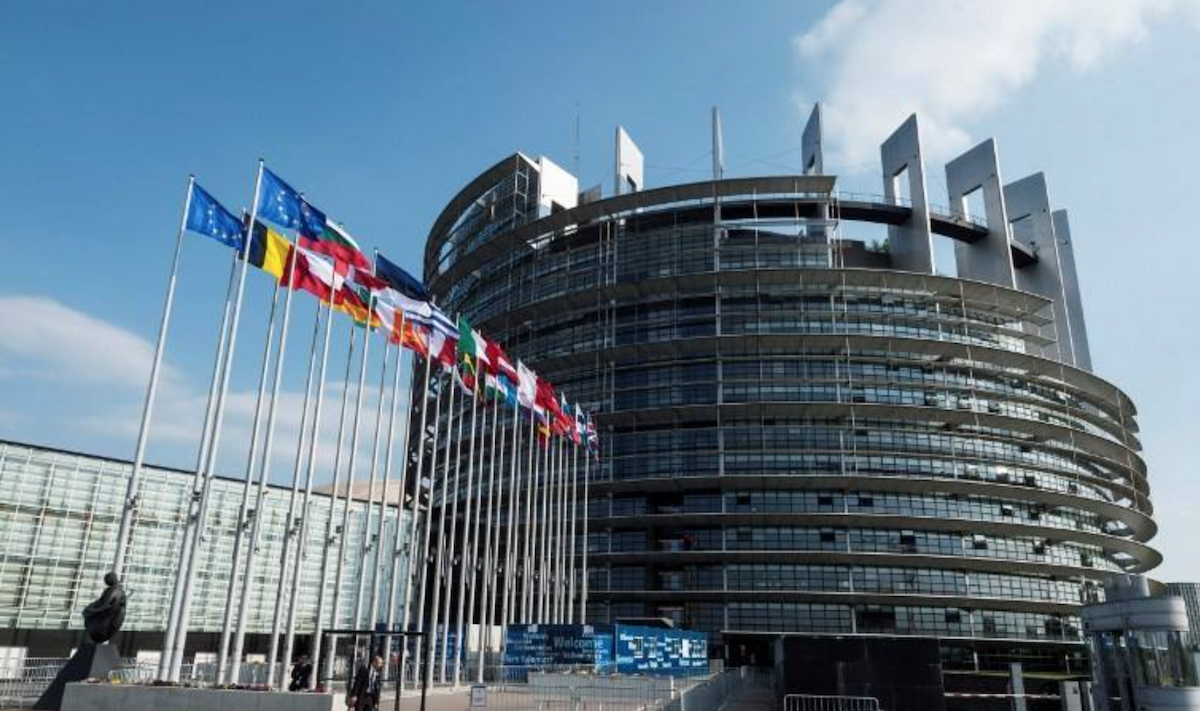IPI: "The EU must react immediately to media repression in Georgia"
IPI urges the EU to protect journalists in Georgia
The International Press Institute (IPI) issued a statement on the growing pressure the Georgian government is placing on the media, urging the international community to take immediate and effective action against the ruling party, Georgian Dream.
The statement highlights the worsening health of detained journalist Mzia Amaglobeli and notes that the Georgian Dream government has adopted new legislative amendments concerning defamation and bans on media filming inside and outside courtrooms.
According to IPI, these amendments pose a threat to the foundations of independent journalism in Georgia, as independent media have extensively covered trials of individuals arrested for their political views.
IPI’s statement
Each day, Georgia moves closer to becoming a fully consolidated authoritarian regime, as the ruling Georgian Dream party intensifies its efforts to erode democracy and silence independent voices.
The adoption of repressive, undemocratic and illiberal legislation, along with widespread political persecution, is unfolding at an unprecedented scale in Georgia-an EU candidate country once widely considered as a beacon of democracy in the South Caucasus.
These amendments erode fundamental legal protections for journalism by eliminating source confidentiality, fostering self-censorship, and obstructing investigative reporting. These combined changes threaten the very foundations of independent journalism in Georgia.
Mzia Amaglobeli’s health has further deteriorated in prison. Medical examinations revealed a sharp decline: vision in her right eye had dropped from 30% to 10%, while her left eye retained only about 4% vision. An outspoken regime critic, Amaglobeli faces charges of assaulting a police officer – carrying up to seven years in prison – following an altercation with Batumi Police Chief Irakli Dgebuadze.
Amaglobeli’s arrest is widely viewed as retaliation for her journalistic work.
Media workers have been beaten, harassed, detained, jailed, smeared, fined and still continued their work. Amid explicit hostility and a climate of fear, independent journalism is increasingly unlikely to survive in Georgia.
The erosion of civil liberties at an extraordinary pace in Georgia also poses a serious threat to democracy in the region, where far-right and populism are on the rise and illiberal and authoritarian regimes are increasingly gaining ground.
We renew our call on the European Union and its member states to step up pressure on Georgia and stem the rapid descent into authoritarianism. The effective pressure must be applied to not only the Georgian Dream officials but every decision maker as well as judges, responsible for this crackdown on media, capture of the public broadcaster and ongoing impunity for crimes against journalists.
We also renew our call on the GD party to repeal repressive laws, including the Foreign Agents Registration Act (FARA) and recent amendments to the Law on Broadcasting and the Law on Grants. We further urge the Georgian Dream-led parliament to withdraw the recently adopted amendments to the Law on Freedom of Expression, as well as the amendments restricting media coverage of court proceedings.
We reiterate our call for the release of unjustly jailed veteran Georgian journalist Mzia Amaglobeli, who has become a symbol of the resilience of Georgian media.”
The law on the registration of foreign agents, an exact copy of the U.S. Foreign Agents Registration Act (FARA), was passed by the Georgian Dream-controlled parliament on April 1, 2025, and came into force on May 31. Authorities claim its purpose is to limit foreign interference in the country’s affairs and in the work of state institutions.
The law introduces a broad definition of “foreign agent,” applying to any legal or natural person receiving funds from abroad and engaging in civic, political, or informational activities. Such individuals or organizations are required to register; failure to comply is punishable by fines and imprisonment of up to five years.
Independent legal experts confirm that while the text closely mirrors the U.S. FARA, its purpose has been entirely altered. In the United States, FARA is deliberately not applied to NGOs, media, or organizations serving the public interest.
In addition, in April 2025, Georgia’s parliament passed a law banning the issuance or receipt of foreign grants without official approval from the Georgian government.
News in Georgia





















